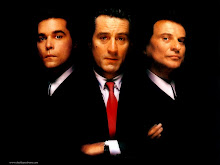To sum up dozens of pages from Paine's "Common Sense" and other writings, the born in Britain, America loving writer, focuses on the point that constitutions are made by and for the people, and not by government. Again, this would seem to be, dare I say, common sense, however, Paine's wording really got me to think a bit more about the formation of constitutions.
I guess in the past I have assumed that governments form constitutions, but it is instead the people who form them. A constitution is meant to be a tangible object that lays down the rights of men and women, among themselves and the government. Government is formed by the people, but the people of a sovereign nation form the constitution, not the government. In other rules, it is self-rule that is also a pre-requisite for the formation of a constitution, because you can't give all the power to one person or one group of persons, because that would just be a monarchy.
Paine uses the examples of the American and French Revolutions in the late 18th century to show governments formed of, by, and for the people, with each nation creating a constitution to protect their citizens rights. This is of course paralleled to the tyrannical governments of Great Britain (Paine just utterly bashes the British, which of course was probably pretty shocking at the time) and other kings in Europe. The fall of hereditary monarchies seemed at last near, and Paine would end up being right...to a certain extent, of course. Modern Liberalism was born!
Thomas Paine's "Common Sense" is a great read for anyone interested in the birth of our nation, or the spirit of democracies and self-government. While a little hard to read at times (and lengthy), this is definitely a book for all to read. And if all else fails, his writing is at least fun to read for his frequent rips on the King of England, those shady German dudes, English upper-class Lords, and tyrannical rule in all it's worthless and self-defeating glory!

